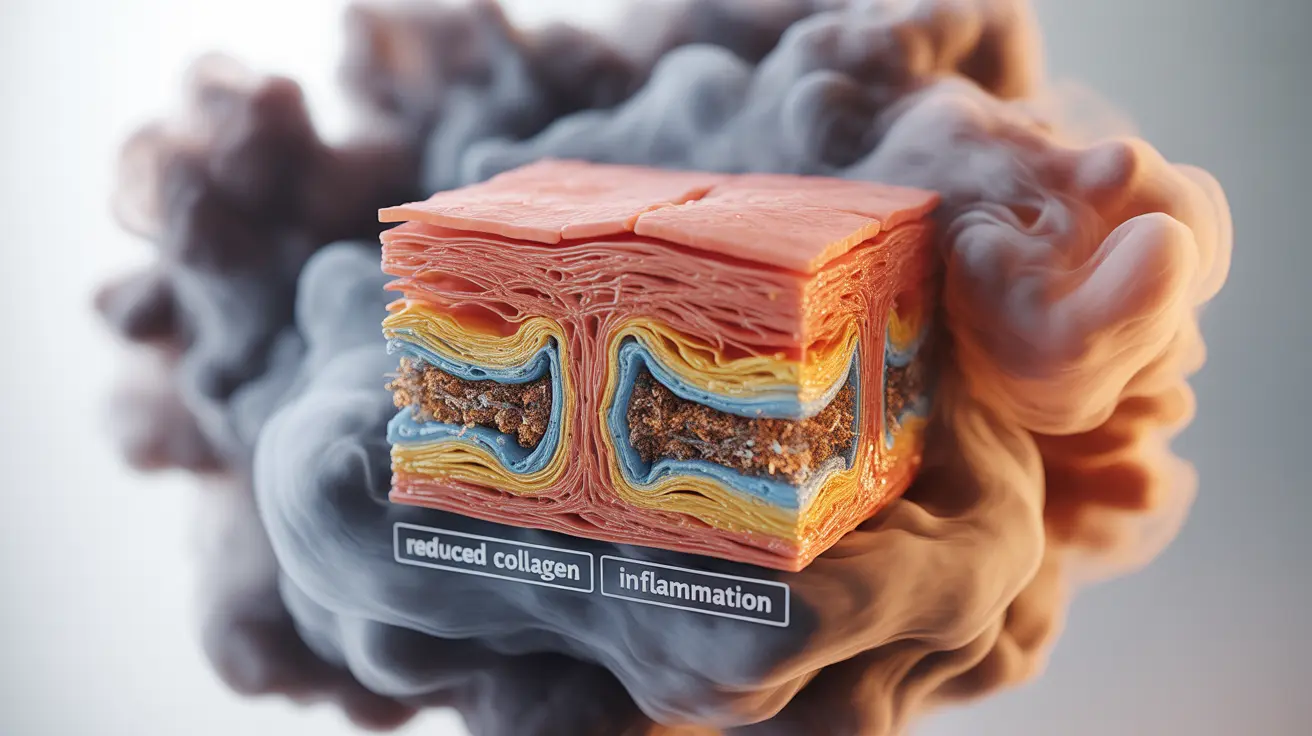The relationship between smoking and eczema is a significant concern for both smokers and those exposed to secondhand smoke. Understanding how tobacco use affects this common skin condition can help individuals make informed decisions about their health and manage their symptoms more effectively.
Recent research has shown that smoking not only increases the risk of developing eczema but can also exacerbate existing symptoms. This comprehensive guide explores the complex relationship between smoking and eczema, offering valuable insights for prevention and management.
How Smoking Affects Your Skin Barrier
Tobacco smoke contains thousands of harmful chemicals that can significantly damage your skin's protective barrier. These toxins can:
- Reduce collagen production
- Decrease skin hydration
- Impair natural healing processes
- Trigger inflammatory responses
When the skin barrier is compromised, it becomes more susceptible to irritants and allergens, potentially leading to eczema flare-ups or the development of new cases.
The Risk of Eczema for Smokers
Active smokers face an increased risk of developing eczema due to several factors. The toxic compounds in cigarette smoke can trigger immune system responses that contribute to skin inflammation and irritation. Additionally, smoking can:
- Increase oxidative stress in the body
- Alter the skin's microbiome
- Reduce blood flow to the skin
- Deplete essential nutrients needed for skin health
Impact of Secondhand Smoke Exposure
Even if you don't smoke directly, exposure to secondhand smoke can significantly impact your skin health. Studies have shown that individuals regularly exposed to environmental tobacco smoke have a higher likelihood of developing eczema, particularly children and those with sensitive skin.
Benefits of Quitting Smoking for Skin Health
Quitting smoking can lead to significant improvements in skin health and eczema symptoms. Some positive changes include:
- Better blood circulation to the skin
- Improved wound healing
- Enhanced skin barrier function
- Reduced inflammation
- Better response to eczema treatments
Management Strategies for Smokers with Eczema
If you smoke and have eczema, implementing these management strategies can help minimize symptoms:
- Use appropriate moisturizers more frequently
- Take shorter, cooler showers
- Avoid additional skin irritants
- Consider nicotine replacement therapy
- Seek support for smoking cessation
Frequently Asked Questions
Can smoking cause eczema or make existing symptoms worse?
Yes, smoking can both trigger new cases of eczema and worsen existing symptoms. The toxins in tobacco smoke damage the skin barrier and promote inflammation, making the skin more susceptible to eczema flare-ups.
How does exposure to secondhand smoke affect my risk of developing eczema?
Secondhand smoke exposure significantly increases the risk of developing eczema, particularly in children and individuals with sensitive skin. The harmful chemicals in environmental tobacco smoke can trigger inflammatory responses and compromise the skin barrier.
What are the benefits of quitting smoking for people with eczema or at risk of developing it?
Quitting smoking can improve skin barrier function, reduce inflammation, enhance blood circulation to the skin, and improve the effectiveness of eczema treatments. Many people notice significant improvements in their skin health within weeks of quitting.
Are there any specific ways to manage eczema symptoms if I smoke or have been exposed to tobacco smoke?
Key management strategies include using moisturizers more frequently, avoiding additional skin irritants, taking shorter and cooler showers, and considering smoking cessation support. Protecting your skin from further damage is crucial while working to quit smoking.
How does tobacco smoke damage the skin barrier and contribute to eczema flare-ups?
Tobacco smoke damages the skin barrier by reducing collagen production, decreasing skin hydration, and triggering inflammatory responses. These effects compromise the skin's natural protective functions, making it more vulnerable to irritants and allergens that can trigger eczema flare-ups.




